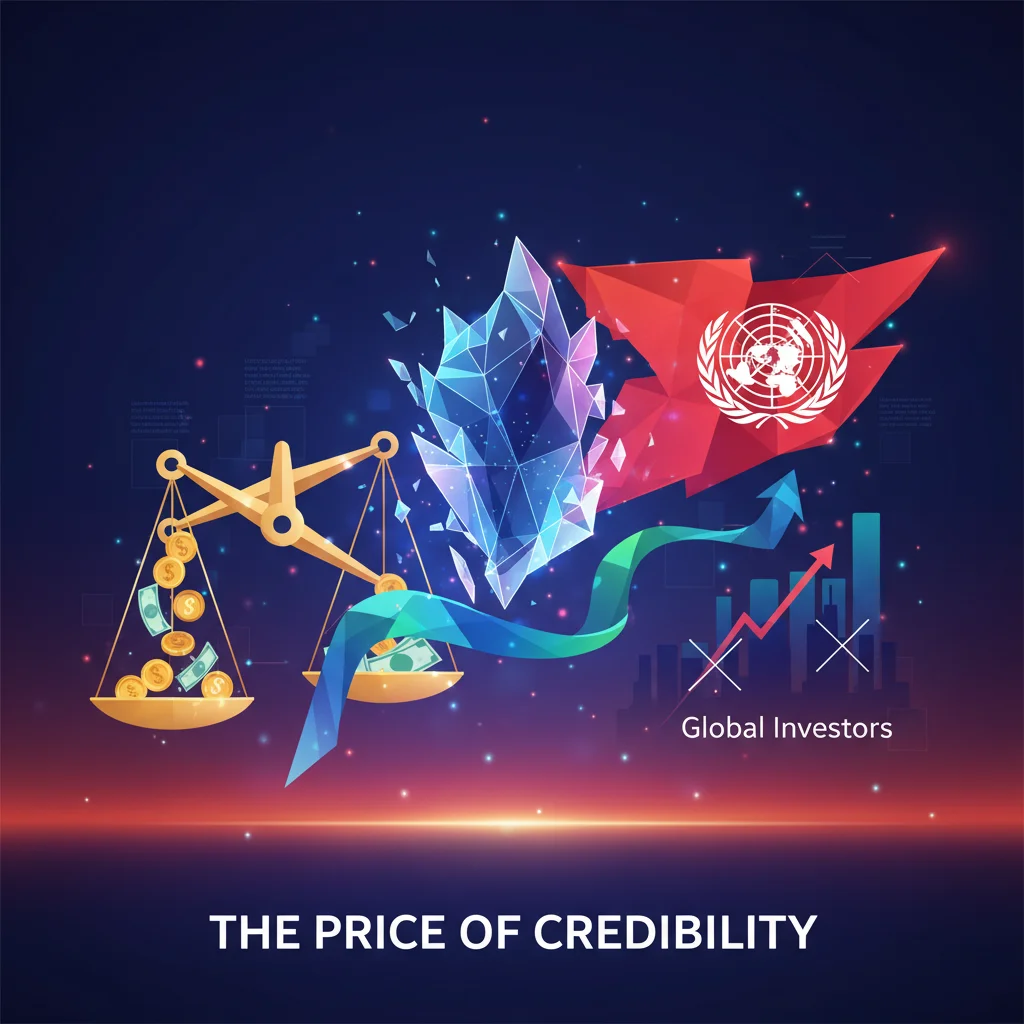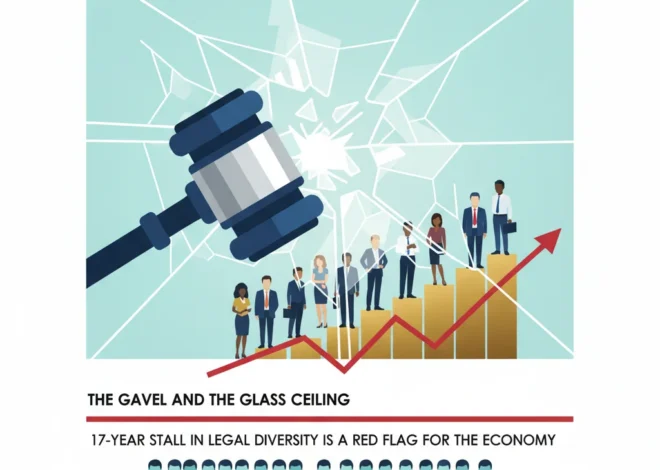
The Price of Credibility: Why the UN Labour Agency’s Qatar Move Is a Major Red Flag for Global Investors
In the world of global finance and investing, reputation is a currency as valuable as any dollar, euro, or yen. It’s a critical asset for nations seeking foreign investment, for corporations building global brands, and for international bodies tasked with upholding universal standards. This is why a seemingly internal administrative decision by a UN agency—the International Labour Organization (ILO)—has sent shockwaves through circles of diplomacy, human rights, and, crucially, investment. The proposal to relocate its Middle East headquarters from Beirut to Doha, Qatar, has ignited a firestorm of controversy, forcing a stark confrontation between geopolitical influence and institutional integrity.
For investors, finance professionals, and business leaders, this isn’t just a distant bureaucratic shuffle. It’s a live case study in Environmental, Social, and Governance (ESG) risk, a test of a nation’s long-term economic strategy, and a powerful indicator of the shifting dynamics in the global economy. The debate over the ILO’s potential new home in Qatar is a microcosm of the complex calculations that now dominate modern investing, where a company’s or country’s ethical standing can directly impact its financial bottom line.
The Proposal on the Table: A Move Fraught with Peril
The International Labour Organization, the UN’s specialized agency for promoting decent work and labour rights worldwide, is considering a significant operational shift. The plan involves moving its regional headquarters, currently based in the politically and economically volatile city of Beirut, Lebanon, to the gleaming, gas-rich metropolis of Doha. On the surface, the logic seems sound: Qatar offers stability, state-of-the-art infrastructure, and substantial financial resources. However, the proposal was met with immediate and fierce opposition from within the ILO itself.
According to a report by the Financial Times, ILO staff have raised serious alarms, questioning whether the agency can maintain its independence and credibility while being headquartered in a nation with a deeply troubled record on worker exploitation. An internal staff petition highlighted the “fundamental conflict of interest” and the potential for “reputational damage” that could undermine the ILO’s core mission. This internal dissent underscores the gravity of the situation: the very people tasked with defending labour rights are skeptical of their organization’s ability to do so from a Qatari base.
The controversy forces a critical question: Can an organization dedicated to protecting workers operate effectively under the patronage of a government that, until very recently, was a global symbol of migrant worker abuse? The answer has profound implications not just for the ILO, but for the entire ecosystem of global governance and the financial markets that rely on its stability and predictability.
Venezuela on the Brink: An Economic Autopsy and Its Impact on Global Finance
Qatar’s Labour Paradox: Sweeping Reforms vs. Persistent Allegations
To understand the staff’s alarm, one must look at Qatar’s complex and often contradictory labour landscape. For years, the country’s economic model, which powered its transformation into a global hub for finance and energy, was built on the back of the notorious kafala sponsorship system. This system tied migrant workers directly to their employers, creating conditions that human rights groups frequently likened to modern slavery. Workers faced passport confiscation, debt bondage, and an inability to change jobs or leave the country without their sponsor’s permission.
The intense international scrutiny leading up to the 2022 FIFA World Cup catalyzed significant change. Under immense pressure, Qatar enacted a series of landmark reforms. It largely dismantled the kafala system, introduced a non-discriminatory minimum wage, and established new mechanisms for dispute resolution. The ILO itself opened an office in Doha in 2018 to support this reform process, often praising the country’s progress. According to the ILO, these changes have benefited millions of workers (source).
However, implementation has been uneven, and rights groups like Human Rights Watch continue to report serious issues. Allegations of wage theft, unsafe working conditions, and unexplained migrant worker deaths persist. The challenge for observers, and now for the ILO, is to reconcile the official narrative of progress with the lived reality of many workers on the ground. This duality is a classic example of the social and governance risks that ESG investors must navigate.
Below is a summary of the competing arguments surrounding the proposed ILO headquarters move, which highlights the central conflict:
| Arguments FOR Moving to Doha | Arguments AGAINST Moving to Doha |
|---|---|
| Political & Economic Stability: Qatar offers a secure and stable operating environment compared to crisis-ridden Lebanon. | Conflict of Interest: The ILO’s independence could be compromised by being hosted and funded by a country it must also monitor. |
| Financial & Logistical Support: Qatar provides significant financial resources and modern infrastructure, easing operational burdens. | Reputational Damage: Associating with a country still facing allegations of worker exploitation could tarnish the ILO’s global credibility. |
| Proximity to Reform Efforts: An HQ in Doha could allow the ILO to more closely support and monitor Qatar’s ongoing labour reforms. | Chilling Effect: Staff may feel constrained in their ability to criticize the host government, undermining their core mission. |
| Regional Hub: Qatar’s central location and world-class airport make it a convenient hub for regional operations. | Sends the Wrong Signal: The move could be perceived as rewarding a country for incomplete reforms, weakening pressure for further change. |
The Economics of Influence: ESG, FDI, and the Qatar Stock Market
The ILO controversy is inextricably linked to Qatar’s ambitious economic diversification strategy. The nation is aggressively working to reduce its reliance on hydrocarbons and establish itself as a leader in sectors like finance, financial technology (fintech), and sustainable investing. Attracting prestigious international organizations is a core component of this “soft power” strategy, designed to enhance its global image and attract Foreign Direct Investment (FDI).
For the global investing community, this presents a complex picture. On one hand, Qatar’s sovereign wealth fund is a major player in global markets, and its domestic stock market offers opportunities. The government is actively promoting a business-friendly environment to attract international banking and asset management firms. However, ESG criteria are no longer a niche concern; they are a fundamental part of risk assessment.
A move by the ILO to Doha could be interpreted in two ways by the market:
- A Stamp of Approval: Proponents would argue that securing the ILO’s regional HQ is the ultimate validation of Qatar’s labour reforms, signaling to investors that the country has turned a corner and that social risks are diminishing.
- A Red Flag for Governance: Skeptics, however, would view it as a sign that Qatar’s influence, rather than its substantive reforms, is driving the decision. This could raise deeper questions about governance standards and transparency, potentially deterring ESG-conscious investors.
The debate also touches upon emerging technologies. While concepts like blockchain are often touted as potential solutions for creating transparent supply chains and verifiable worker credentials, their effectiveness depends entirely on the political will to implement them without interference. Technology cannot solve a problem of institutional integrity. Therefore, investors in the region’s burgeoning fintech and tech sectors must consider the underlying governance framework in which these technologies operate.
The Authenticity Premium: Why the Market's 'Vibe Shift' Is Your Next Big Investment Signal
Beyond Doha: Precedent and the Future of Global Institutions
The final decision on the ILO’s headquarters will set a powerful precedent. If the move proceeds despite widespread internal and external concern, it could signal a weakening of the independence of international organizations in the face of financial and political pressure from wealthy member states. This could embolden other nations with questionable human rights records to use their financial leverage to gain legitimacy on the world stage.
For business leaders and multinational corporations, this case highlights the increasing complexity of geopolitical risk. The choice of where to locate a regional headquarters is no longer just a question of logistics and economics; it is a statement of values that has tangible consequences for brand reputation, employee morale, and stakeholder relations. Companies operating in or considering expansion into the Gulf must weigh the economic opportunities against the potential for reputational contagion.
Ultimately, the ILO is at a crossroads. One path leads to a state-of-the-art facility in a stable, wealthy nation, but at the potential cost of its soul. The other path involves navigating the difficulties of its current location or finding an alternative that doesn’t compromise its core principles. For the world of finance, trading, and investment, the choice it makes will be a telling indicator of whether, in the modern global economy, integrity remains an asset beyond price.
The Great Auto-Shift: Why a Shipping CEO's Warning Spells a New Era for Global Markets
The outcome will be watched closely, not just by diplomats and activists, but by every investor who understands that in an interconnected world, social and governance risks are, and always will be, financial risks.


